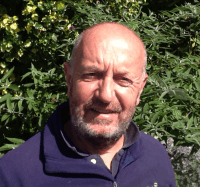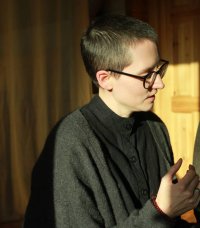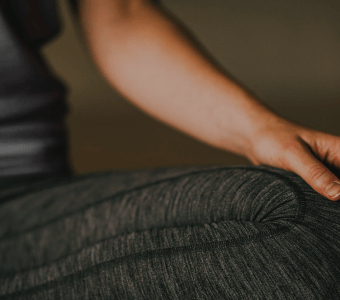
Discover the Heart of Buddhism
‘Living the Awakened Heart’ is a training in meditation, reflection and insight from the Mahamudra & Dzogchen traditions of Tibetan Buddhism.
I'd been studying Buddhism for many years but I still found that even the first sections of ‘Living the Awakened Heart’ revolutionised my understanding, bringing it to a whole new depth.
The teachings invite us to look at our own sense of what is true, and there is a truth pointed out that cannot be denied. At first I thought it was basic stuff but now I realise that it’s the very core of the Buddhist path.
I’d recommend this training to anyone looking to explore their own mind, be they experienced in meditation or new to the search. I found it helped my meditation by giving me like minded people to talk to and boosting my energy.
What I found in Discovering the Heart of Buddhism profoundly touched me right from the start - and went so far beyond my expectations that it is difficult to find words to describe.
Discover the truths of Buddhism through your own experience
It made me really 'sit up' and explore my experience in new ways. As I explored each new section it opened up and contained the whole path - I do not cease to marvel at the way each seemingly simple theme points to the most profound truth.
The training really made me look closely at my own experience. It provided a framework which widened and widened to encompass the whole of the Buddha's teaching.
Living the Awakened Heart involves inner inquiry and an experiential exploration of Buddhist teachings, a way of exploring the living heart of Buddhism without rituals or complex terminology.
Connect to the heart of Buddhist teachings
Living the Awakened Heart focuses on the heart of Buddhism, the most fundamental questions about your experience of life and the nature of your being.
It draws on some of the most profound Buddhist teachings, the Mahamudra and Dzogchen teachings of Tibetan Buddhism, to give you a sound basis for a lifetime of deep spiritual practice.
The teachings and reflections it introduces are ones you will keep coming back to however long you meditate, and so it is equally suitable for those who have read about and practised Buddhism for some time and for those who are completely new to it.
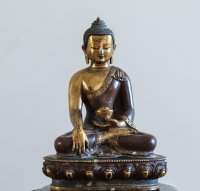


I would recommend Living the Awakened Heart to anyone seeking meaning. I have seen it be really helpful for both beginners on the path and also people with many years of experience in meditation and Buddhism. It would be a great follow on from a Mindfulness course.
Someone who comes to Buddhism as an "interested beginner" could not find a better introduction than the Living the Awakened Heart. But it also suits someone who, like me, has been searching for answers to the big questions and needs a way to get to grips with a constructive practice to allow them to explore deeper.
I think it is best for someone who is sure they want to explore deeply. Although Living the Awakened Heart is flexible, it does need commitment to follow through and get the most out of it.
Develop your practice of meditation
I can't believe how my meditation practice has changed. I used to put myself under pressure and look for results all the time. I was getting frustrated and even angry. But now after joining Living the Awakened Heart I feel I'm on the right track. I look forward to meditating where as in the past it felt like a chore.
The way meditation it taught in Living the Awakened Heart has enabled me to relax more. It has reminded me that anything that happens during meditation, anything in my mind, is all the same. Because of this I feel my meditation has become more about letting go and being gentle rather than applying something to myself.
It has helped me develop a greater awareness and curiosity in my sitting meditation practice, and has sometimes opened my mind to insights. Even though I don’t meditate with as much regularity as I’d like, what l've been learning from the training is something l take with me most of the time in everyday life.
Receive regular guidance from teachers & mentors
You go to some Buddhist groups and you feel that the teachers are just giving you the party line but on Discovering the Heart of Buddhism I felt that it was coming out fresh every time from their own experience.
My mentors have helped me enormously. I have found a great deal of value in being able to discuss practice regularly with someone who has practiced for much longer than I have. It forges a strong feeling of connection, and reinforces a sense of significance to the practice as a whole.
Lama Shenpen’s teaching goes straight to the heart. She brings great clarity to very profound teachings and expresses them in a simple way one can actually experience in meditation.
Become part of a spiritual community
When you start Living the Awakened Heart, you’re not on your own. You become part of a community of like-minded people - the Awakened Heart Sangha - with whom you can share you inspiration and discuss challenges. How you choose participate is entirely up to you.
Regular online courses offer the chance to get together for a few months with a group of other people who want to explore the same subject. Led by a mentor, you work over materials week by week and discuss them with others on the course.
Lama Shenpen and other Awakened Heart Sangha teachers lead face-to-face courses and retreats at different places in the UK. A typical events combines teachings, meditation sessions, and opportunities for a one-to-one interview with the teacher.
These events help to reinforce what you learn at home, but they’re not essential and many people find they can’t come to any, or only a few. There is often an option to participate online, meditating from your own home while linked into a live stream from the retreat.

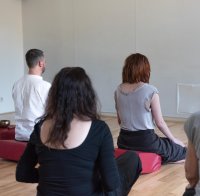
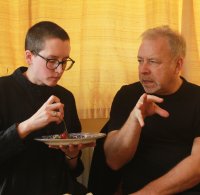

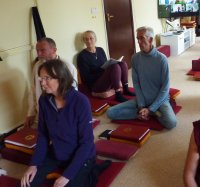
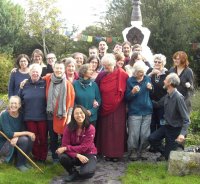
I feel part of a loving community that really cares about each and every member. There is also a lot of fun and laughter. It is very open, no barriers, it is very welcoming to newcomers.
When I joined I didn't think too much about the community side. I didn’t want to be a member of anything or label myself. Being a text-book introvert I thought ‘why can’t you just get on with it on your own?’ But over time I've gradually grown to understand and appreciate it’s value.
I found online courses helpful, and very practical for me to be able to keep up as and when I have some peaceful time. When I’ve come to retreats in person, and there have been others who have been participating in the same retreat online, they have really felt part of the proceedings.
The sense of being part of a community is helpful. Sometimes I’ve consciously reminded myself that there are others "out there" who are in it as well. Online retreats give me an opportunity for some concentrated practice and to "meet" other members.
Explore at your own pace
You decide for yourself when to study and practice. You can follow the training entirely from home, learning how to bring meditation into your everyday life.
If it helps you to come together with others, you can take part in courses and retreats that are held throughout the year, both online and in various locations in the UK.
The first year of Living the Awakened Heart focuses on a set of ten carefully written books, you are lead on a journey of meditation and reflection, an exploration into the nature of your being. You work through each book gradually, discussing with your mentor as you go. When you’re ready, the next book is sent to you at no charge.
The materials are specifically designed so you can engage with them in small ‘bites’. This makes it more possible to fit half an hour into odd spaces during a hectic week. It also helps you to really explore for yourself what’s pointed out, and realise its full meaning in everyday life.






I liked being able to pick it up and slot it in when I had a few spare minutes in my busy life.
I’ve appreciated having the options of different ways of connecting.
I have felt able to progress at my own pace but nurturing all the time inner reservations.
The diamond-like clarity of the materials can only have come from being written by someone deeply inspired at the time and being later polished with care.
Give what you can afford
There’s no set fee for Living the Awakened Heart. Instead, everyone makes a monthly donation of whatever they can afford.
It’s not a commercial product you buy from an organisation, but something that’s made available by the shared effort of a community. When you engage in Living the Awakened Heart, you become a member of this community, the Awakened Heart Sangha.
I am very happy to give my monthly contribution feeling it offers me and others a path forward. I think it wonderful that there is no fee for the training - that could be a deterrent to people, like me, who have to battle with powerful reservations.
I give £30 a month, which in a way feels like a lot when I’m on a low budget, but the contact I have with experienced teachers and the sangha is invaluable.
I wish I could afford to give more. I began meditating in the 1970's and have practiced with varying degrees of intensity! Starting Living the Awakened Heart more recently has helped beyond words, leading me to spend more time on meditation and deepening my practice.
Start Living the Awakened Heart today
- Immediately you receive online materials so you can get started as soon as you like.
- In a few days you'll receive a large welcome pack by post with your first books.
- Within a week a senior student will be in touch to introduce you to the training and discuss how best to support you in working through the materials.
- You will be invited to begin a six week course where a trained mentor introduces you to meditation as practised in the Awakened Heart Sangha.
- Gradually you’ll introduced to all the other ways you can participate in the training

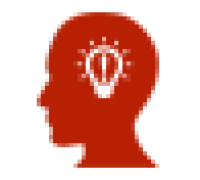

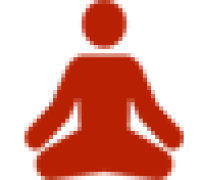




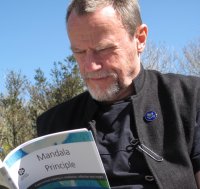

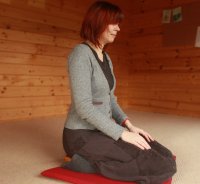
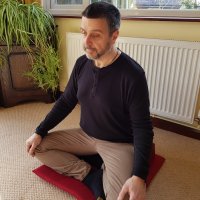

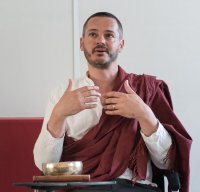
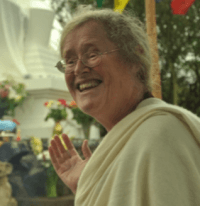
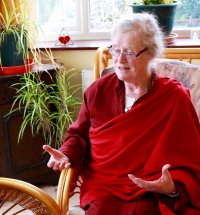
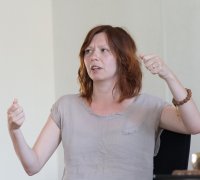

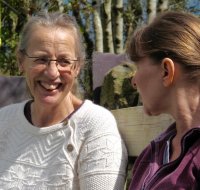
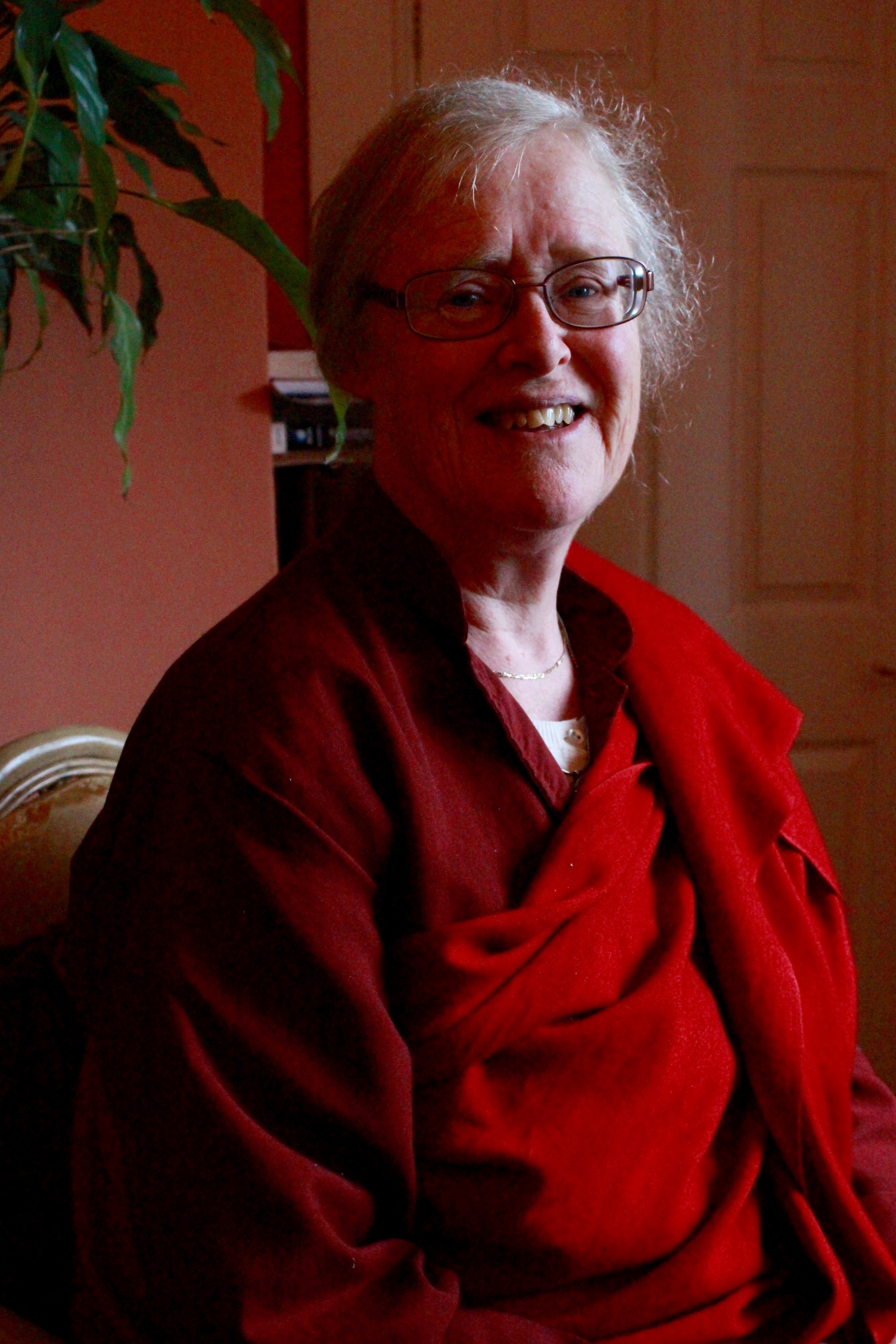 Lama Shenpen Hookham is the founding Lama of the Awakened Heart Sangha and principle teacher of the Living the Awakened Heart training
Lama Shenpen Hookham is the founding Lama of the Awakened Heart Sangha and principle teacher of the Living the Awakened Heart training
